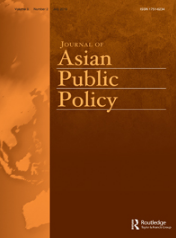 An author who claimed that he accidentally plagiarized material in a retracted paper has lost two more — again, for plagiarism.
An author who claimed that he accidentally plagiarized material in a retracted paper has lost two more — again, for plagiarism.
Earlier this year, we shared a 900-word statement in which Christopher S. Collins at Azusa Pacific University explained he unintentionally plagiarized a paper by taking notes on it — including writing down whole sentences — and using them in his own paper, forgetting the original source. Did the same thing happen three times?
We’re asking ourselves that question after finding two more retractions for Collins for plagiarism. One lists five different sources that he incorporated without attribution.
Here’s the retraction notice for “A higher education learning profile in the Asia-Pacific,” published in the Journal of Asian Public Policy:
We are now cognisant the article contains portions of other authors’ writings on the same topic without sufficient attribution to these earlier works. This action constitutes a breach of warranties made by the authors with respect to originality and of our policy on publishing ethics and integrity. We note we received, peer-reviewed, accepted, and published the article in good faith based on these warranties, and censure this action. The author has also requested to retract the above-cited article. The retracted article will remain online to maintain the scholarly record, but it will be digitally watermarked on each page as retracted.
The paper was originally published in 2013. The journal is not indexed by Clarivate Analytics’ Web of Science, formerly part of Thomson Reuters.
Here’s the retraction notice for “Global Assessment in the World Bank Education Strategy 2020,” published in Excellence in Higher Education:
This article published in Volume 2, Issue 1, pages 29-41 (DOI 10.5195/ehe.2011.41) has been retracted at the request of the editors. The editors became aware of the issue on 21 March 2016 and quickly began investigating the situation. Several locations in the article contain plagiarized texts from various authors, either with inadequate or no attribution. Specifically, these include: excerpts from Marilee J. Bresciani’s 2006 book Outcomes-Based Academic and Co-Curricular Program Review: A Compilation of Institutional Practices appearing on page 30; excerpts from Tom Schuller and Stéphan Vincent-Lancrin’s chapter in the 2009 book International Organizations and Higher Education Policy: Thinking Globally, Acting Locally? appearing on page 31; excerpts from the Organisation for Economic Co-operation and Development (OECD) website “UNESCO, OECD guidelines for quality provision in cross-border higher education” appearing on page 31; excerpts from David H. Kamens and Connie L. McNeely’s 2010 article, “Globalization and the Growth of International Education Testing and National Assessment” published in the Comparative Education Review appearing on page 31, and; excerpts from E. J. K. McKellar’s conference paper “Change our assessment practices? Why should we? The theory behind assessment practices” appearing on pages 32-33. The author apologizes to the journal and to its readers for the errors noted above.
The article, published in 2011, is not indexed.
The editor of the journal, James Jacob, told us that Collins,
was very cooperative. I had a couple of positive communications with him. He handled this in a professional way.
The retractions follow requests to the editors from Michael Dougherty, a philosopher at Ohio Dominican University. (Dougherty’s name might be familiar to regular readers. He’s prompted a handful of retractions for plagiarism that we’ve written about, including over a dozen for a philosopher who did a brief stint on our leaderboard.)
We have reached out to Collins, and will update this post with anything else we learn.
Like Retraction Watch? Consider making a tax-deductible contribution to support our growth. You can also follow us on Twitter, like us on Facebook, add us to your RSS reader, sign up on our homepage for an email every time there’s a new post, or subscribe to our daily digest. Click here to review our Comments Policy. For a sneak peek at what we’re working on, click here.